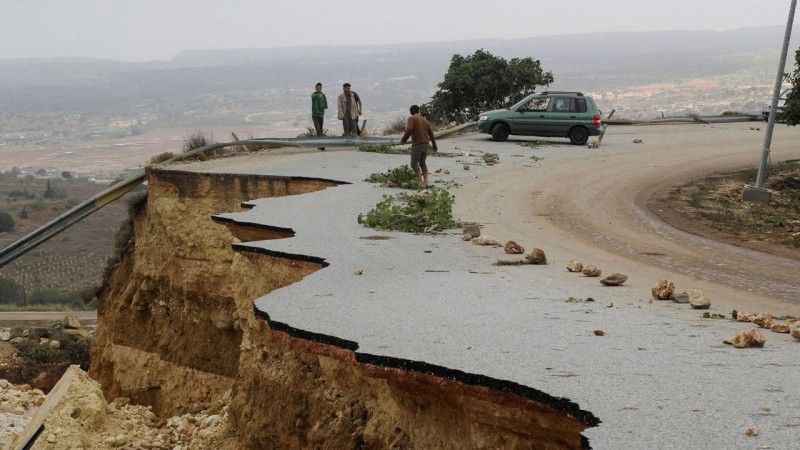
Libya floods: the drowning of Derna was a man-made disaster decades in the making
In the early hours of September 11, residents of Derna in north-east Libya woke to the sound of loud explosions. After more than a decade of conflict – initially between the Gaddafi regime and local factions, then among militias fighting for rule – they were used to the noise.
But this was different. This was the breaking of two dams upstream towards the Jebel Akhdar (the Green Mountain) overwhelmed by the rain surge from Storm Daniel.
A seven-metre wave thundered down Wadi Derna through the city, washing whole suburbs into the sea. Soon, thousands of people would be dead and tens of thousands missing.
But even as aid organisations and foreign medical services were trying to organise rescue and recovery operations, Elseddik Haftar – eldest son of the regional warlord General Khalifa Haftar – chose the moment to announce he was planning to stand as a candidate in the next presidential election.
A weekly email with evidence-based analysis from Europe’s best scholars
Get our newsletter
That moment is almost the perfect metaphor for the plight of Derna – and for Libya itself. A cataclysm of climate change, neglect and conflict, made worse by one family’s relentless quest for power.
It’s not that there hadn’t been ample warning of the dangers facing Derna. In November 2022, hydrologist Abdelwanees Ashoor of Omar Al-Mukhtar University in nearby Bayda published research that showed that the barriers needed urgent attention if they were to hold for much longer. As Derna’s deputy mayor, Ahmed Madroud, acknowledged after the flood hit: “The dams have not been maintained since 2002.”
Derna: a story of conflict and neglect
The reason for this stretches back to the authoritarian years of Muammar Gaddafi. From the time Gaddafi took power in 1969, dissident factions in eastern Libya, including Derna, chafed at his rule and his base among western tribes. Gaddafi responded by depriving the region of resources and investment.
The dictator’s demise brought no relief or stability for the east. In the factional struggle that ensued, two main competitors emerged: the Government of National Unity based in Tripoli, backed by the UN and led today by prime minister Abdul Hamid Dbeibeh.
In the west and south, meanwhile, Haftar built a power base in Benghazi and Tobruk from where his National Liberation Army held sway with the help of foreign allies such as Russia, Saudi Arabia, the UAE, Egypt and France. To lend a veneer of credibility, Haftar established a parliament in Tobruk with a government led by prime minister and career politician Osama Hamad, who owes his position to Haftar.